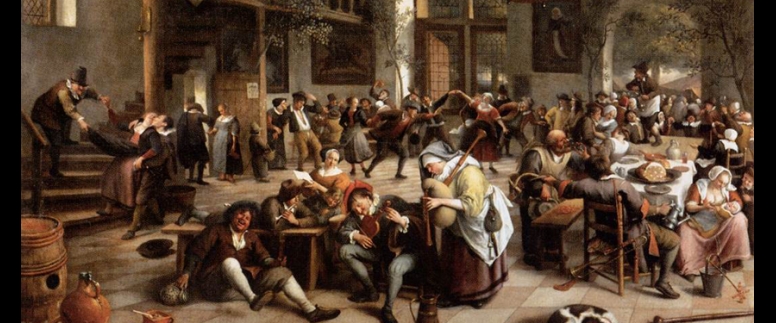
Where did people get their news and opinion in colonial times?
Yes, we know the old stories of the Town Criers who would go about announcing some relevant item, like the King had died or a merchant ship was arriving. Pretty much that was all the detail one could get. Very basic.
Newspapers were a great source of information about news of the day and politics. However, few could actually read. And, much like today, the media was heavily biased toward one side or the other. The Journalism practice of simply reporting…telling just the facts of an issue or story, never has been the standard for the industry in reality. Consider also, that the papers were usually owned by a political organization and thus took a very hard line stand for their side of any argument. And they didn’t play fair in describing opponents or issues. A prohibition about spitting on the sidewalk might lead to editorials decrying such a statute as equalling the end of freedom as we know it. People, on the other hand, were usually described in crude terms that usually related to animal husbandry or unnatural physical relationships. You get the ugly picture…
Church and town hall discussions were monitored closely by repressive groups, usually the oppressive government or the repressive religious leaders. Saying the wrong thing, like dissenting opinions regarding the crown, were dealt with harshly and quickly. Corporal punishment usually issued by army corporals resulted from such open discussions at such locations. It was not only humiliating, but painful. And it probably left a mark, or two, or twenty…
Where the real discussions occurred was the only place where people could congregate and the noisy crowds masked the talk. Yes, we are discussing the local tavern.
Taverns were a familiar but significant part of eighteenth-century American culture. They were a community's most durable, most easily identifiable, most rigorously defined and most contested public space. A visitor to a Boston tavern in the 1760s would have expected to find lodging, a meal, and to carouse, gamble and gossip. But they also would have visited a tavern to receive word of ship movements, collect a letter from England, identify potential employees and employers, participate in the political process, or even observe an acrobat perform `a variety of feats of activity.'
In short, taverns were never thought of solely as places to simply go for a drink. They encompassed a spectrum of entertainment, serious discussion, and social interaction. Taverns and their keepers were both actors in, as well as settings for, actions and interactions crucial to the public culture of a community. As the tavern was the interactive focal point for the community. Politics were not only discussed in taverns, but the taverns themselves were an integral part of the eighteenth century political process. By the start of the American Revolution, taverns were the setting for the promotion and resolution of conflicts and tensions between political ideology. Throughout the colonies, and especially in the northern cities, taverns were used to quietly formulate public opinion and to disseminate free thought and rebellious doctrine. Revolutionaries used taverns to establish grass roots support for American independence.
So, American Bar will offer ongoing discussions of our rich traditions, cultural heritage and fight for liberty that resulted in the greatest nation on earth, the United States. Keep coming back here regularly for the very best in engaging stories about our sudsy past.




